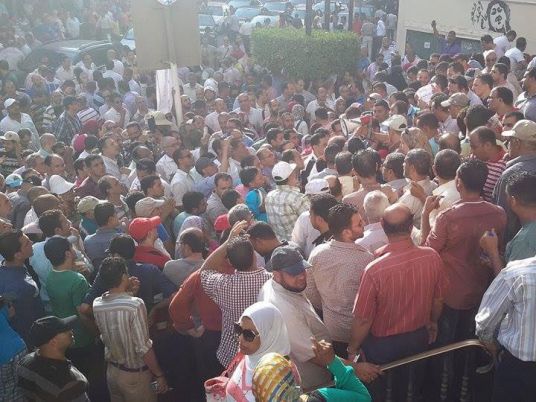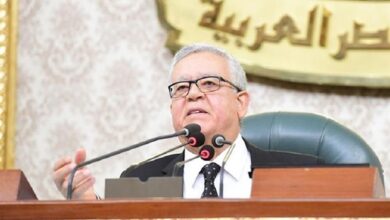
The House of Representatives voted on Wednesday against the Civil Service Law, which has sparked several protests by government employees since its enactment by the presidency in March 2015.
In Wednesday’s public session, 332 members voted against the law, while 150 voiced support.
The law was first rejected by parliament’s Manpower Committee, which referred it to the public session.
The law regulates appointment criteria, vocational degrees, payments, retirements and promotions for civil workers at government agencies. It had drawn criticism from labor rights activists and a number of trade unions that lobbied against the document. The government, meanwhile, said the law would allow for remarkable improvement in the state’s administrative bodies.
The vote against the law will not, however, annul any benefits employees have received from its application, according to Salah Fawzi, a law professor at Mansoura University.
Planning Minister AshrF Al-Araby said in press statements last Saturday that rejecting the law in parliament would hamper a second and third tranche of a US$3 billion loan to Egypt by the World Bank and the African Development Bank. He said rejecting the law would represent "a backtracking on previously agreed reforms" and a "negative message to world organizations."
Mohamed Fouad, a member of Wafd Party’s parliamentary bloc, said his party’s rejection of the law was not a rejection of enhancement to public administration, but rather for articles in the law that were “unjust” for state employees.
“Though I belong to the working class, I see that 95 percent of the articles are good,” said Abdel Fattah Ali, an MP from Mustaqbal Watan Party.
Ahead of the parliament’s vote on the law, a number of political parties unrepresented in parliament, as well as NGOs and members from the Journalists' Syndicate, reiterated opposition to the law.
“Planning Minister Ashraf al-Araby had previously stated that the law was one of the conditions set by the World Bank for Egypt to receive a new loan, which (conditions) are never in the favor of the poor as they involve layoffs, price hikes, subsidy lifting and privatization,” said a statement signed by the law’s opponents.
“The law vividly seeks to reduce payments…and to easily sack employees without the need for judicial clearance, based on unfavorable evaluation,” according to the statement, adding that the law, setting basic salaries at a minimum of LE835, dishonors the government’s pledge in 2013 to set the minimum of wages at LE1200.
They added that the law unfairly excludes employees at the presidency and the Cabinet from its effects.
Edited translation from Al-Masry Al-Youm




